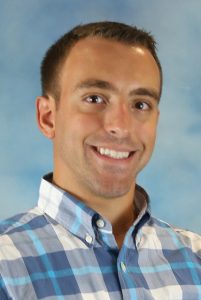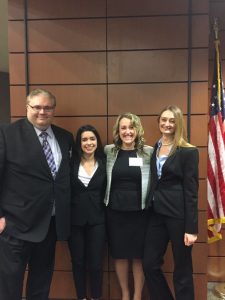24th Annual Howard B. Eisenberg Do-Gooders’ Auction—An Interview with PILS Fellow Ben Lucareli
 The 24th Annual Howard B. Eisenberg Do-Gooders’ Auction on behalf of the Law School’s Public Interest Law Society (PILS) will be held on February 17 at the Law School. Proceeds from the event go to support PILS Fellowships to enable Marquette law students to do public interest work in the summer. Ben Lucareli, a current law student, shares his experience here as a PILS Fellow.
The 24th Annual Howard B. Eisenberg Do-Gooders’ Auction on behalf of the Law School’s Public Interest Law Society (PILS) will be held on February 17 at the Law School. Proceeds from the event go to support PILS Fellowships to enable Marquette law students to do public interest work in the summer. Ben Lucareli, a current law student, shares his experience here as a PILS Fellow.
Where did you work as a PILS Fellow?
In the HIDTA (High-Intensity Drug Trafficking Area) unit of the Milwaukee County District Attorney’s Office.
What kind of work did you do there?
I worked closely with multiple attorneys in the HIDTA unit, helping them to prosecute felony-level drug and gun crimes. During my time in the office, I wrote numerous briefs at the trial court level, conducted legal research for the attorneys, and wrote and filed criminal complaints. I also helped the attorneys sift through evidence, transcripts, and other documents to prepare for trial. Each week, I accompanied the attorneys to various hearings, as well as a few jury trials. During the hearings and trials, I would take notes for the attorneys and help them organize and present evidence to the jury. In addition to my work with the attorneys, I also went on a ride-along with a local police department, and got to work on projects with local police officers and DEA agents.


